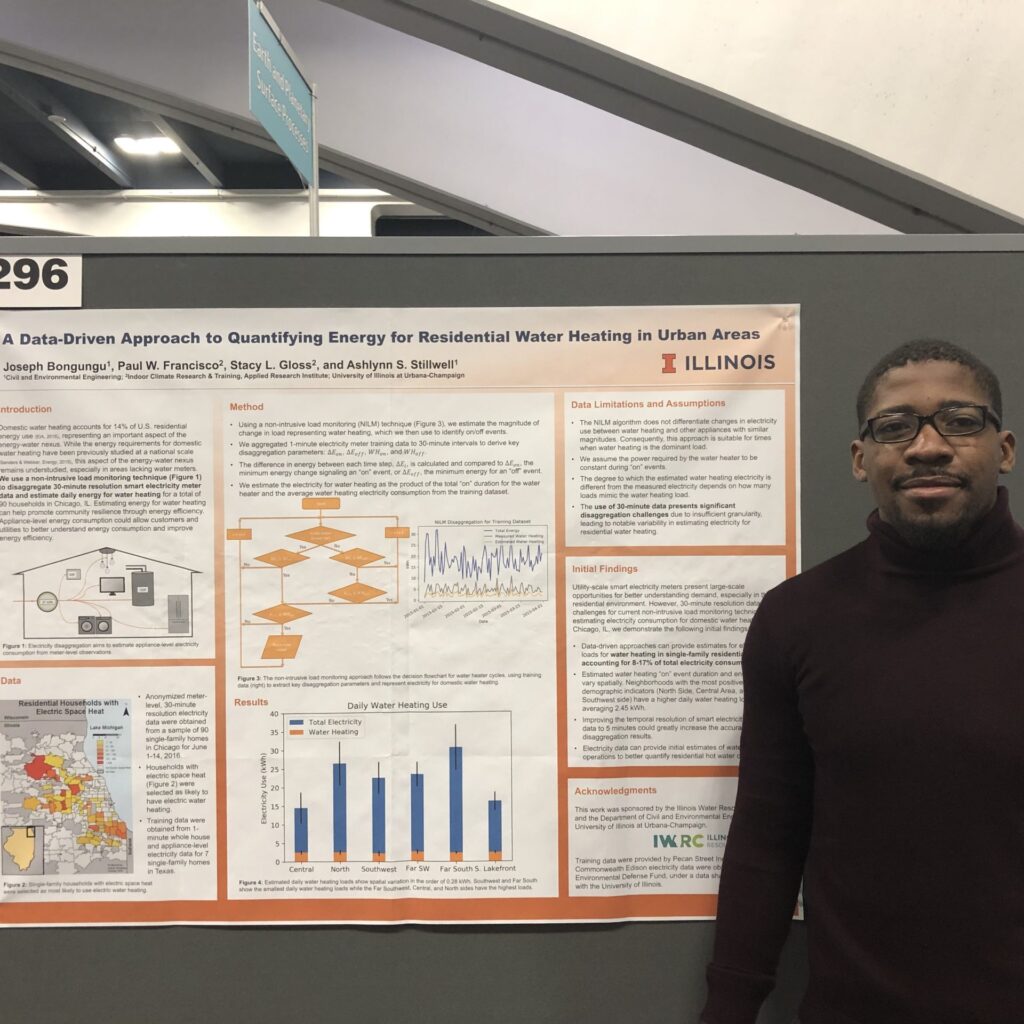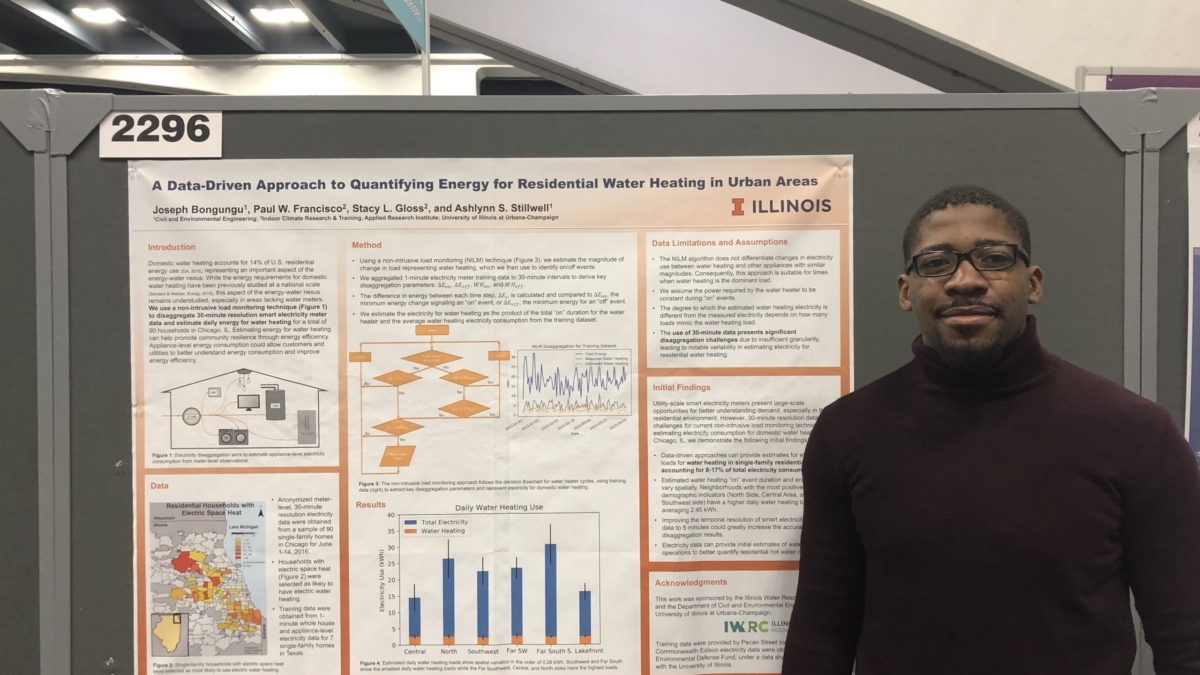DR. ASHLYNN STILLWELL, UNIVERSITY OF ILLINOIS
JOSEPH BONGUNGU, UNIVERSITY OF ILLINOIS

Project Aims:
In this project, we aim to estimate residential hot water use from smart electricity data for areas in greater Chicago. We estimate electricity for water heating, as a measure of hot water consumption, using meter-level data for single-family residential homes (with electric space heat) at 30-minute resolution.
Hypothesis:
We hypothesize that “smart” electricity meter data can provide an estimate of hot water consumption, via electricity for water heating.
Implications:
Our findings reveal that disaggregation of electricity meter data can provide an estimate of water heating; however, those estimates have significant uncertainty due to the temporal resolution of the electricity data. These findings
1) provide estimates (albeit overestimation) of hot water consumption in single-family residential homes;
2) demonstrate spatial variability in water heating and energy load;
3) emphasize the need for finer temporal resolution electricity data for further study.
Techniques/Methods:
We use non-intrusive load monitoring (NILM) to reveal the electricity signal for estimated water heating “on” events. Given the uncertainty in NILM techniques and the lack of ground-truthed water heater data, we conducted the disaggregation over a selected 2-week window with daily load patterns and weather conditions reflecting a likely lack of heating or air conditioning usage.
Results:
The results of our work are currently in preparation for publication in a journal manuscript and Joseph Bongungu’s M.S. thesis. Both publications will be submitted in May/June 2020. Results indicate that water heating in the analyzed single-family residential homes accounted for 8-17% of total electricity consumption, representing an average of 40-60 gallons of hot water consumption per day.

